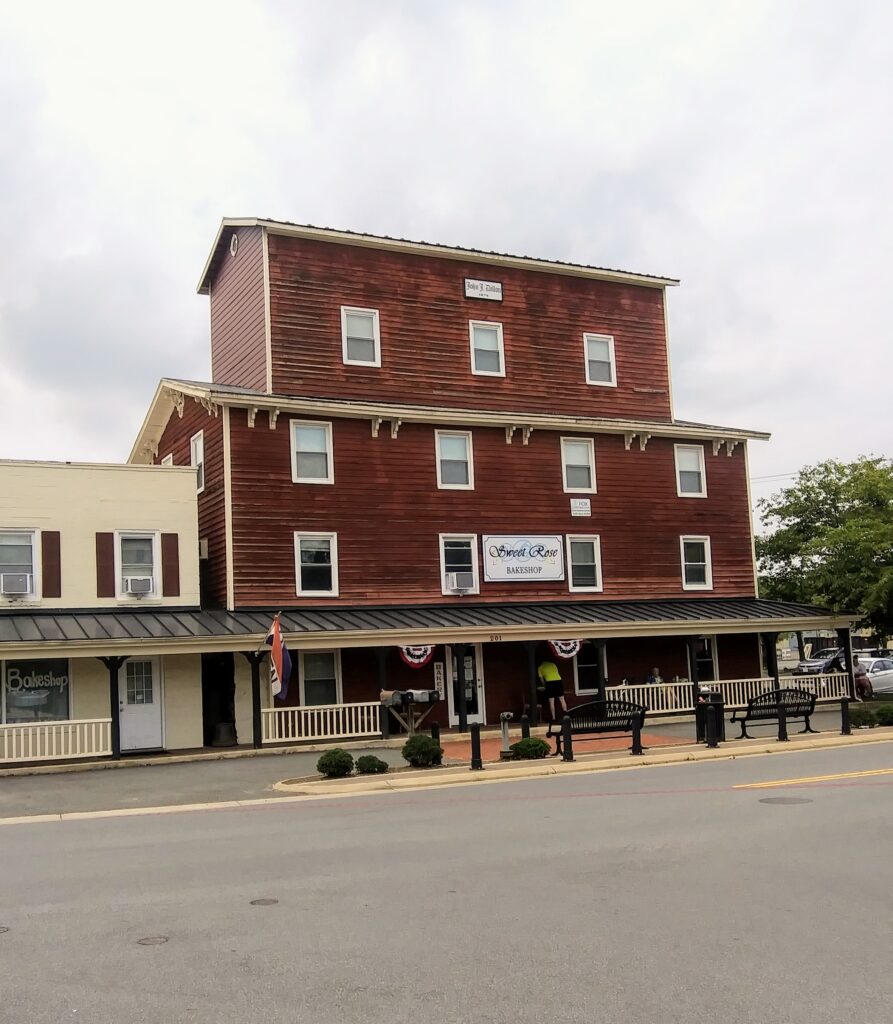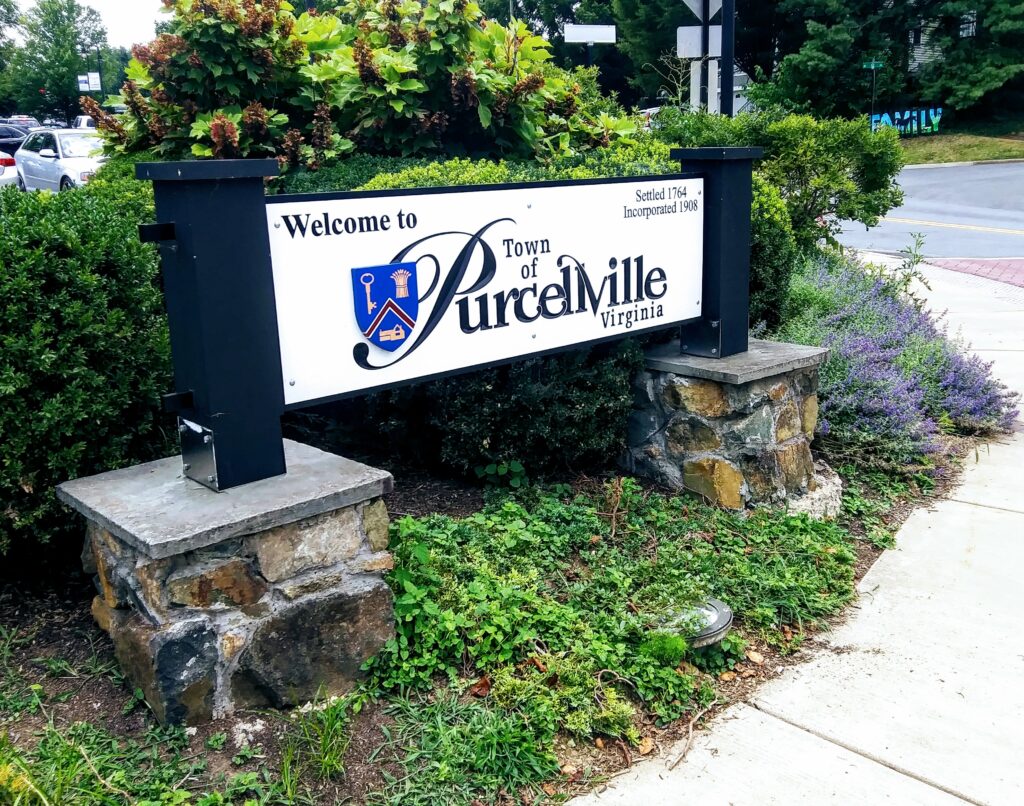During my recent trip to Purcellville, I noticed the Dillon Mill, a wooden building. If you look carefully above the top middle window of the building, you will see a sign with the name of John James Dillon and the date of 1874 on it.
The Dillon Building is located at the intersection of North 21st and 23rd Streets in Purcellville, VA.
The online history states that Dillon’s ancestors initially came to Loudoun County from Bucks County, Pennsylvania. James and Rebekah Dillon were Quakers who purchased 1,050 acres of land. They were the first known settlers to the area.
The below photograph shows the Dillon building or the Dillon Mill built in 1874.

In 1875 Milton, Bolyn and Company started to sell agricultural seeds, fertilizer and other implements that farmers could use out of the Dillon Building. In 1905, the Dillon Mill opened.
Contee Lynn Adams sold the Loudoun Valley Milling and moved in to the Dillon Building in 1943. Contee wanted to concentrate on only cleaning seeds. He changed the firm’s name to Contee Adams Seed Company and used the mill to clean orchard grass seeds. The milling process used a non-water source to power the mill.
Uses for Orchard Grass Seeds
Orchard grass seeds are important because they were used as packing material for munitions during World War II and the Korean War. Experts found that small arms, rifles, etc., packed in wood chips would shift. However, munitions are safer packed in dense orchard grass seeds. Overseas, once the guns were unpacked, the orchard grass seeds were given to farmers in Great Britain and others to feed their livestock.
Orchard grass is very versatile since it is used for seeding pastures and is an excellent feed for livestock.
To clean orchard grass seeds, the seeds are taken out a bin and placed into a hopper. The seeds are then fed through coarse to fine screens to remove husks and other matter. Fans remove the seed from the chaff. The clean seeds are then bagged in paper and sold. During World War II, when paper became scare, the seeds were packed in burlap bags.
Ending Notes on the Dillon Mill
Contee passed away in 1960 and Lynn, his son, took over operations. Lynn also raised and sold Christmas trees.
Lynn died in 1991 and the mill ceased operations.
The Dillon Building now houses a variety of businesses such as a bakery/coffee shop and offices.
Over the years, the Dillon Mill is one building that played many vital roles in the local community.


